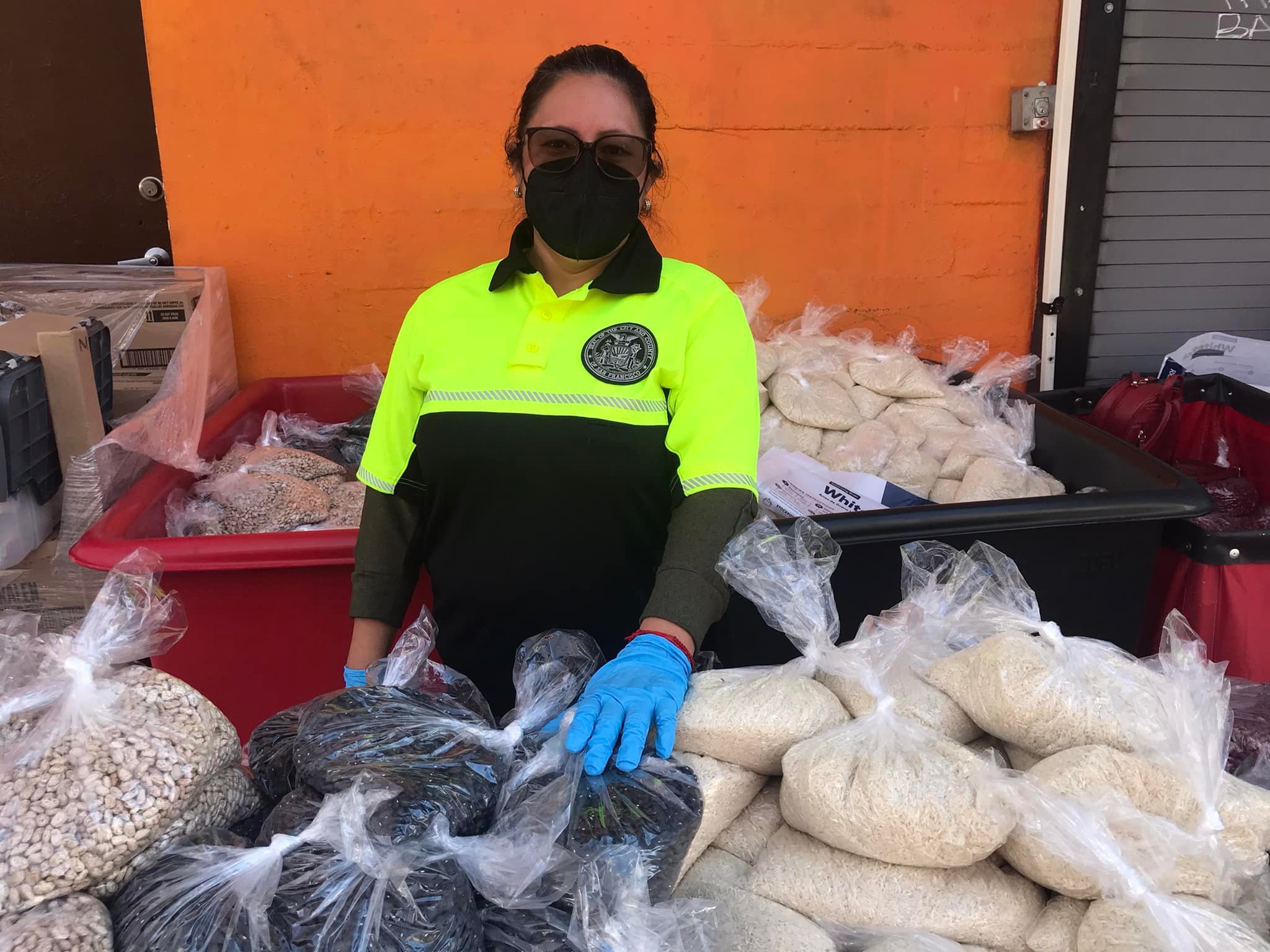Community Changer: Mission Food Hub
People need more than “pounds of food” to live. They require nutritious meals that enrich their lives and spirit.
This is something the team at Mission Food Hub in San Francisco understands well, and has incorporated as a goal of their community activism.
The nonprofit was opened in 2020 to provide culturally appropriate groceries for families who were affected by COVID-19. Founder Roberto Hernandez received a call one day from a local woman in need of food for her family, and immediately began rallying his network to support her and others facing similar challenges.
Their efforts grew substantially over time.
After initially providing 500 families with one grocery bag a week, word caught on and Mission Food Hub increased to three times a week for around 9,000 families during the peak of the pandemic.
These days, about 200 to 250 people stop by every Friday to visit the organization’s mercado.
“We serve primarily monolingual Spanish speakers,” Rosine Garcia, Program Director for Mission Food Hub, tells Replate. “One of the reasons they come is because we treat them like people. When they go to other food pantries, they’re made to feel like they should be grateful for the food they’re given. Whereas we greet them - “Buenos Dias!” - we talk to them as they are passing through. A lot of our volunteers are actually people who were in the line at some point, and wanted to give back to their community.”
Rather than providing pre-packaged boxes or nonperishable goods, as can be standard at many food banks, Mission Food Hub hosts a weekly market, where guests can peruse aisles, and select what the food they’d like to eat, as they would in a typical grocery store.
Guests can choose from fresh fruits and vegetables, and various types of protein.
“It brings a sense of relief,” Garcia explains. “People are always hungry, which is unfortunate because it's a basic need, but it's not something that everyone can understand. We used to handout food boxes provided by the USDA, but noticed that there were always a lot of leftovers because [the administrators] prioritized pounds. They would just try to meet a 50-lb mark. As a result, sometimes we would get a box with two bags of potatoes.”
And of course, potatoes alone will not fulfill dietary guidelines.
Mission Food Hub shifted to a market-style distribution to provide wholesome, well rounded options that would support diverse nutritional needs.
Garcia adds, “For someone who can't afford to go grocery shopping, we wanted to give them a sense of dignity to have a choice in what they can get. They're not forced to receive food that they may not necessarily know how to cook.”
Because the organization does not receive city funding, they have to outsource food from nearby donors, or obtain monetary contributions to replenish their market. Replate supports Mission Food Hub’s work with food donations from local farmers’ markets.
The unique variety of contributions has created an even stronger sense of community among guests.
“People tend to group Latinos as one group when we're such a wide range of different flavors and cultures,” Garcia says. “We all have slightly different cooking techniques, and patterns. With the fruits or vegetables that we receive from the farmers’ market, some of us may not know how to cook with them, but others do. It's led to sharing recipes and tips. It’s been interesting to see the cross-cultural interactions.”
What’s most inspiring to Garcia is the optimism her guests bring to the market each week. Despite whatever challenges they face at home, they are resilient in the face of adversity.
She comments, “It's that positive energy that keeps me moving.”
To learn more about Mission Food Hub, visit their website.
Find out everything on Replate here!


